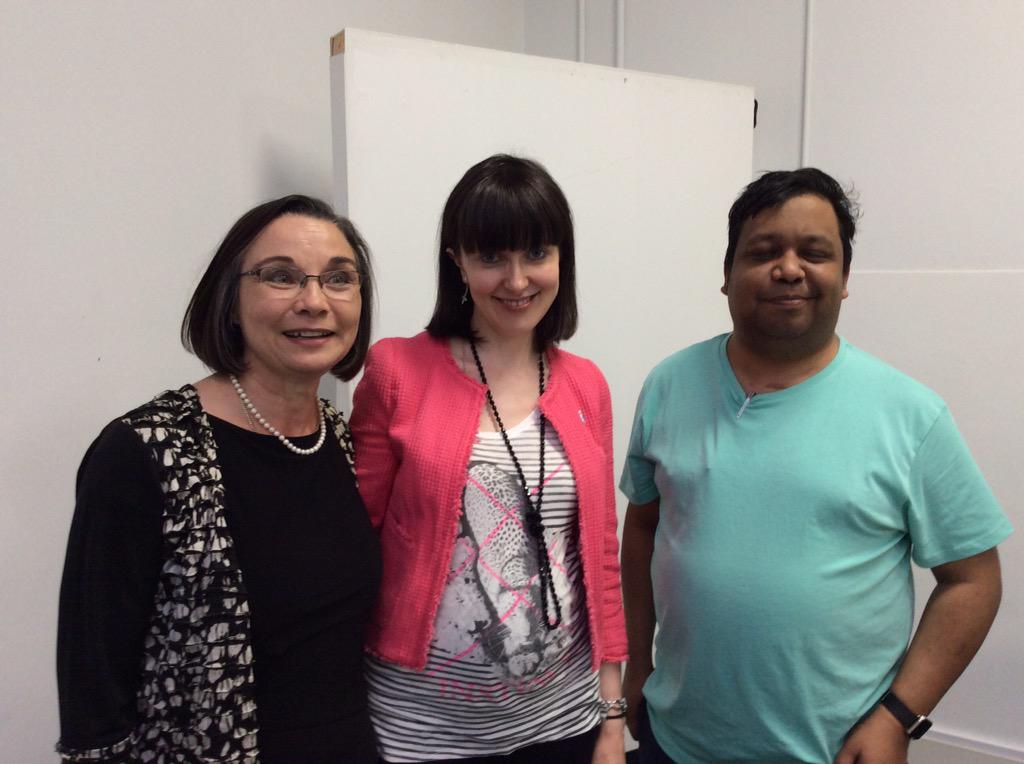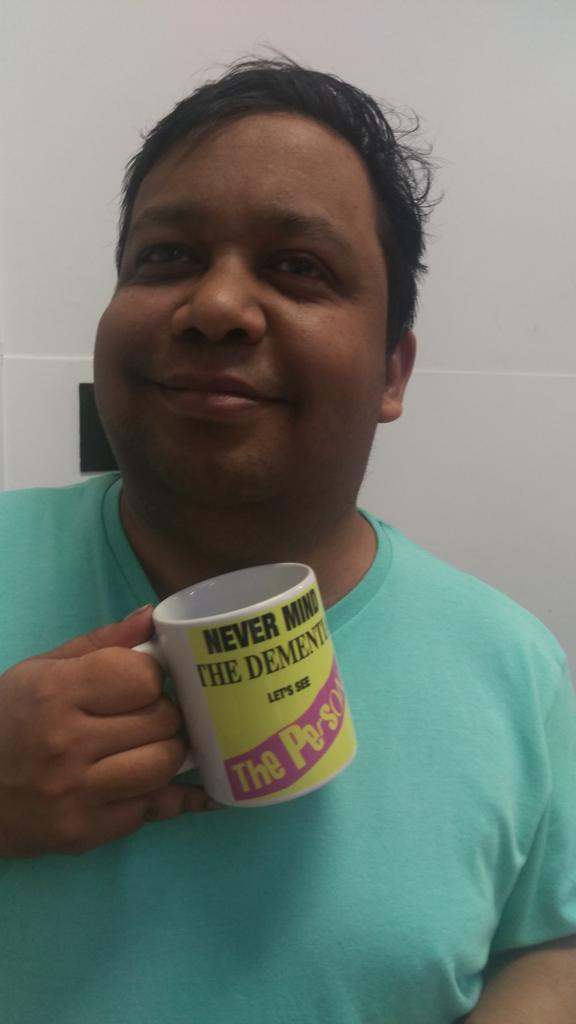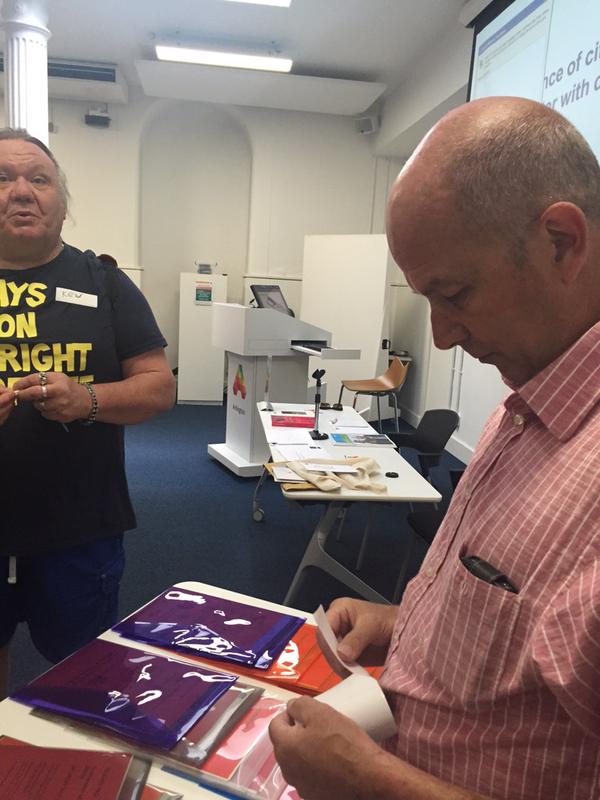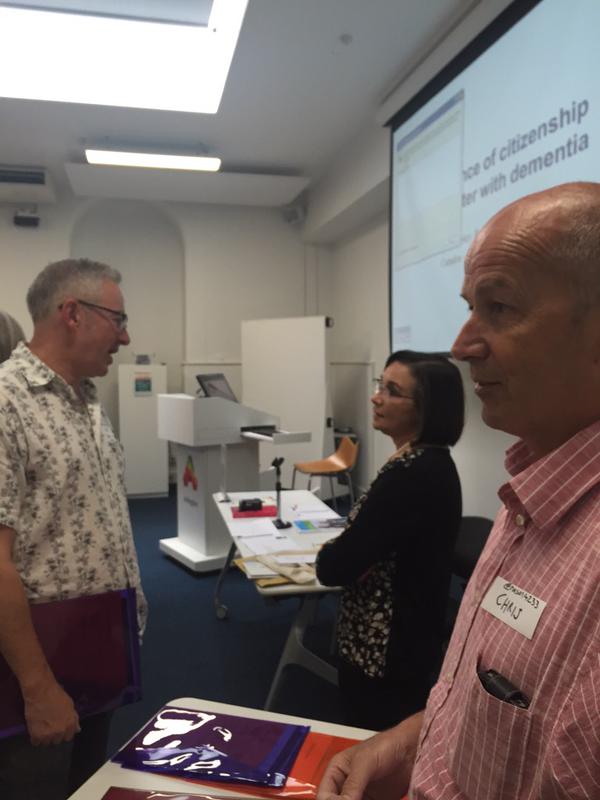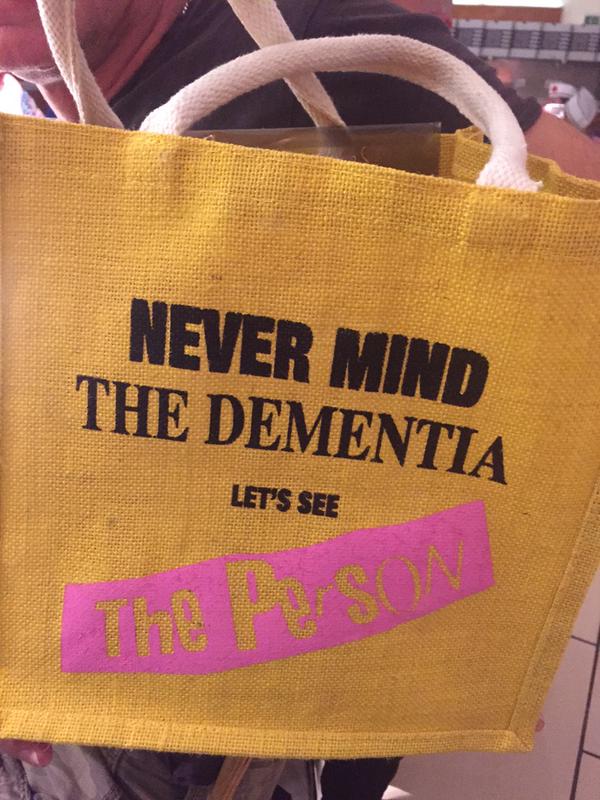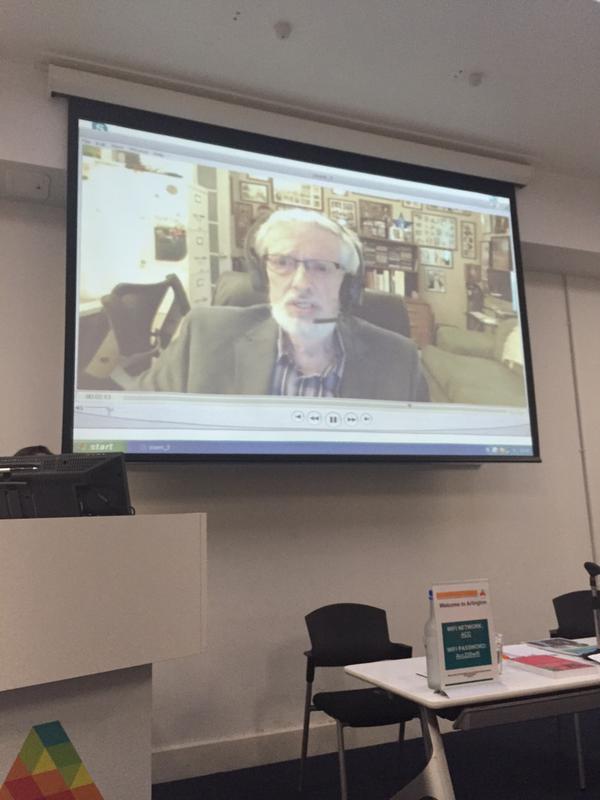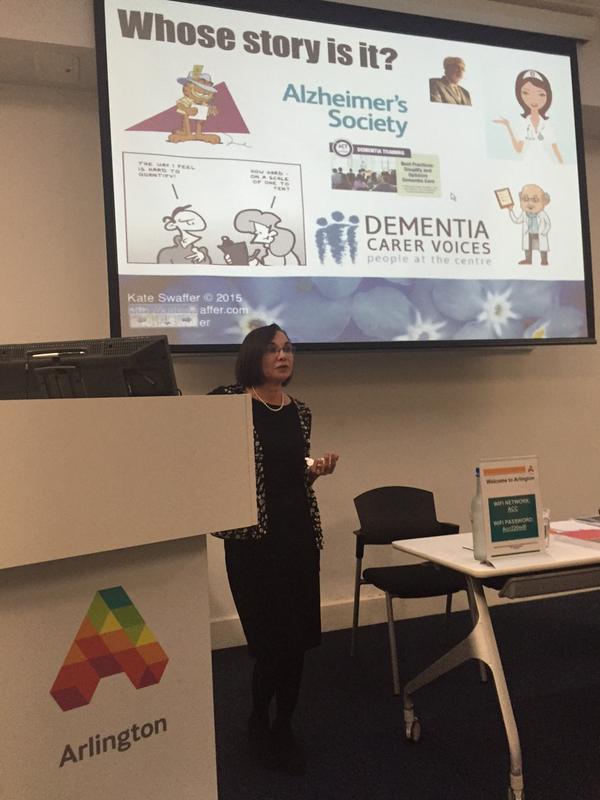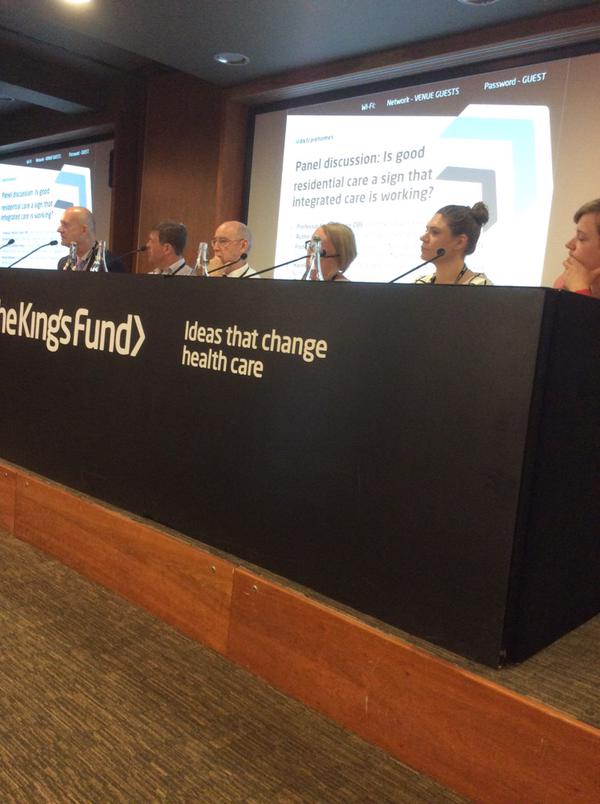Contemporaneous peer-reviewed research, from the UK and other jurisdictions, and evidence guidelines pervade my text like letters in a stick of rock.
I am grateful for the following members of the research community who’ve made it into my book ‘Living better with dementia: good practice and innovation for the future‘, to be published in the next ten days I reckon.
Eyeballing the list, it seems as if Sube Banerjee, Jill Manthorpe and Liz Sampson are my most extensively cited authors – this does not surprise me at all, given their spectacular research output.
Final list
Aalten, P. 194
AARP 233
Aarsland, D. 325, 326
Ablitt, A. 70, 364
Abma, I. 121
Aboriginal and Torres Strait Islander Healing Foundation Development Team 64
Adams, K.B. 143
Adams, S. 107, 362
Adams, T. 131, 359
Addis, D.R. 313
Adelman, R.D. 135, 138, 144
Adelman, S. 69
Adkins, J. 372
Aguero-Torres, H. 151
Ahlskog, J.E. 38
Ahmed, S. 116, 118, 119
Ahtiluoto, S. 72
Alagiakrishnan, K. 174
Alarc.n, R.D. 86
Alaszewski, H. 281
Albert, M.S. 29, 206
Algase, D.L. 244, 246
Alisky, J.M. 323
All-Party Parliamentary Group (APPG) on Dementia 27, 28, 42, 65, 67–8, 92,
329–30
Allan, L. 180
Alred, D. 359
Alvarez, P. 307, 312
Alvaro, L.C. 276
Alzheimer Scotland 88, 89, 266
Alzheimer’s Association 45, 137
Alzheimer’s Australia 55, 92, 93, 152
Alzheimer’s Disease International 83, 92, 104, 145, 151, 173, 175
Alzheimer’s Society 42, 236
Amabile, T.M. 290
Amaducci, L. 295
American Psychiatric Association 114, 291
Amieva, H. 141
Anckaert, L. 364
Andersberg, P. 247
Anderson, A.K. 309
Anderson, D. 326
Anderson, N. 290
Andrews, S. 71
Andrieu, S. 35
Aneshensel, C. 73
Arai, A. 107
Archbold, P.G. 142
Archer, D. 203
Argyle, E. 231
Armari, E. 101
Arnheim, G. 55
Arseven, A. 115
Arthur, D.G. 244
Arto Rajala, A. 323
Ask, H. 140
Atchison, T.A. 205
Attali, E. 367
Attoe, R. 243
Audit Commission 265
Australian Department of Health 86
Australian Health Ministers’ Conference 88
Australian Institute of Health and Welfare 155
Authors undisclosed (Vanderbilt Law Review) 271
Aveling, E.L. 351
Aveyard, B. 233
Awata, S. 137
Aylward, E.H. 74
Ayres, S. 214
Azermai, M. 88, 325
Backhouse, T. 324, 327–8
Bail, M. 253
Bailey, M. 231
Baker, L.D. 372
Baker, M. 106
Baldwin, C. 243
Balint, E. 198
Ballard, C. 325, 326
Ballenger, J. 56
Balteş, F.R. 297
Bambra, C. 41, 225
Banerjee, S. 25, 30–1, 42, 69, 82, 185, 225, 321, 325, 352
Baran, M. 105
Baranowski, M. 367
Barberger-Gateau, P. 40, 171
Bardsley, M. 210
Barley, V.M. 107
Barnard, C. 58
Barnes, C. 212
Barnes, T.R. 328, 333
Barron, E.A. 114
Bartlett, F.C. 56
Bartlett, R. 57, 58, 130
Barton, A. 206
Basaglia-Pappas, S. 296
Basso, A. 295
Bastawrous, M. 137
Bates, M.S. 107
Batsch, N.L. 52, 53, 59
Battilana, J. 349
Baxter, J. 36
Bazinet, R.P. 172
BBC News 259
Beail, N. 74
Beard, R.L. 59, 294
Beattie, A.M. 103, 108
Beattie, B.L. 249
Beck, A.P. 345
Becker, D. 251
Beckman, S.L. 204
Beer, C. 352
Beerens, H.C. 151
Behuniak, S.M. 58
Benbow, S.M. 54, 66
Bender, M. 130
Benford, R.D. 56, 332
Beninger, R.J. 280
Bennett, S. 206–7, 368
Bennett, V. 244
Beresford, P. 59, 265, 269
Berkhout, A.M. 175
Bernstein, M.S. 59, 365
Berntsen, D. 312
Berrios, G.E. 103, 182
Bertram, L. 362
Best, A. 374
Bettens, K. 172
Bevan, H. 347, 352
Beydoun, H.A. 39
Beydoun, M.A. 39
Bhanji, R.A. 174
Bhattacharyya, S. 66, 101
Bickerstaffe, S. 195, 203, 209
Biessels, G.J. 35
Bigby, C. 276
Bikhchandani, S. 165
Billings, J.A. 247
Billings, P.R. 269
Binney, R.J. 307
Bisla, J. 324
Bj.rneby, S. 237
Black, S.E. 37
Blackburn, D.J. 38
Blackstock, K.L. 85
Blessed, G. 103
Blood, A.J. 295
Bo, K. 184
Boettger, S. 120
Boeve, B.F. 102, 104
Boller, F. 295
Bond, J. 32
Bonuccelli, U. 367
Borelli, P. 367
Borroni, B. 101
Boudrault, C. 172
Bourn, C. 226
Boustani, M. 70
Bower, P. 198, 199, 210
Bowling, A. 32, 141
Bowman, C.E. 276
Boyd, A. 333
Braak, E. 280
Braak, H. 280
BRACE 348
Braddock, D. 74
Bradford Dementia Group 231
Bradley, M.M. 311
Brand, M. 280
Brandon, D. 133
Braun, M. 143
Brayne, C. 82
Brearley, C. 281
Breibart, W. 120, 121
Bremberg, S. 248
Brennan, M. 73
Breteler, M.M. 39
Bridges, J. 153, 351
British Geriatrics Society 116
British Psychological Society 327, 331, 332
Britton, B. 98–9, 187
Brocklehurst, J. 182
Brodal, A. 316
Brodaty, H. 26, 102, 140, 143, 200, 326, 362
Bronfenbrenner, U. 233
Brooker, D. 231, 342
Brooks, J. 268
Brotman, S. 73
Brotons, M. 298
Brown, R. 294–5
Bruce, V. 315
Brunet, M. 28
Brunnstr.m, H. 43
Bryden, C. 17
Buchman, A.S. 39
Buck, H.G. 197
Buckwalter, K.C. 132, 325
Budrys, V. 294
Buisson, E. 149
Bujak, J.S. 205
Bunn, F. 369
Bupa 145, 151
Burant, C.J. 212
Burgener, S.C. 54
Burgess, P.W. 314
Burnham, W.H. 309
Burns, A. 26, 64, 103
Burns, L.R. 205
Burton, A.M. 315
Burton, E. 237, 238
Burton, J. 144
Busemeyer, J.R. 280
Bush, A. 74
Bush, S.H. 119
Bushe, G.R. 345, 347
Butler, M. 194
Butt, J. 64
Byrne, P. 198–9
Cabeza, R. 296, 311
Cacioppo, J.T. 141
Caddell, L.S. 55, 104, 212
Cahill, S. 253
Cai, W. 184
Caldwell, C.E. 290
Callahan, C.M. 143
Cameron, A. 203
Cameron, K. 322, 323
Camic, P.M. 299
Campbell, A. 180
Campbell, D. 100
Campbell, J.C. 131, 282
Campbell, S. 185
Campo, M. 233
Candy, B. 174
Cankurtaran, M. 370
Cannon, W.B. 309
Cant, B. 72
Cantley, C. 150
Cantor, M. 73
Capitani, E. 295
Carbonneau, H. 322
Care Commission 165–6
Care Quality Commission (CQC) 166, 210–11, 232, 232, 324
Carers Trust, Royal College of Nursing (RCN) 129, 133, 134, 144
Carey, G. 230
Caron, C. 322
Carpentier, N. 140
Carr, D. 249
Carr, S. 265
Carreon, D. 149
Carroll, G.R. 165
Carruthers, I. 33–4
Carter, A.I. 140
Casciaro, T. 349
Cass, B. 102
Cassel, E.J. 200
Casten, R.J. 64
Centre for Welfare Reform 88
Cermak, L.S. 314
Cermakova, P. 368
Chakravarty, A. 293
Challis, C. 316
Chan, K.Y. 85
Chan, S.W. 144
Chang, M. 38
Chapin, K. 298
Chappell, N.L. 138, 234
Charles, C. 200
Charon, R. 135
Charpentier, P.A. 119
Charter of Fundamental Rights of the European Union 276–7
Chassot, C.S. 359
Chaudhury, H. 233
Chaufan, C. 98
Chen, R. 226
Chen, T. 89
Cheng, A. 70
Chenoweth, B. 73
Cherry, D.L. 352
Chesbrough, H. 334
Chetty, S.K. 323
Chinthapalli, K. 267
Cholerton, B. 372
Chonchurhair, N.A. 114
Choo, W.Y. 139
Christensen, C.M. 322, 343
Christmas, M. 75
Chryssanthopoulou, C. 66
Chung, J.C. 87
Chung, L.C. 144
Clancy, D. 231
Clare, L. 55, 104, 130, 211, 212, 276
Clark, C.N. 297
Clark, H. 267
Clark, R. 361
Clark, V.P. 315
Clarke, A. 151, 197
Clarkson, P. 180
Clayman, M.L. 135
CLBC 274
Clegg, A. 116
Clemerson, G. 102, 105–6
Clore, G.L. 309
Coetzer, G.H. 345
Cohen, C.A. 13
Cohen, C.A. 139
Cohen, D. 18
Cohen, E. 237
Cohen-Eliya, M. 251
Cohen-Mansfield, J. 55, 324, 330
Cohen, M.E. 243
Cohen, N.J. 307
Cohen, S. 132, 139
Coile, R.C. 204
Cole, L. 180, 185
College of Occupational
Therapists 253
Collins, C. 194
Collins, P.A. 226
Combes, H. 72
Commonwealth Fund 88
Commonwealth of Australia 93
Conklin, J. 351
Conner, M. 350
Connolly, S. 87
Conservative Party 22
Conway, M.A. 312, 313, 314
Cook, C. 174
Cooke, H.A. 232, 234
Cooley, S.J. 247
Cools, H.J. 175
Coons, H.L. 202
Cooper, C. 70, 71, 72
Coppola, G. 172
Coriell, M. 132
Corneg.-Blokland, E. 325, 326
Corrigan, P.W. 54
Corsonello, A. 328
Cortes-Blanco, A. 372
Cottrell, V. 51, 58
Covinsky, K.E. 181
Craft, S. 170, 372
Craig, C. 289
Crammond, B. 230
Cranswick, K. 137
Crawley, H. 164, 169, 175
Creese, B. 325, 326
Crespy, D.A. 205
Cronin-Stubbs, D. 206
Croom, B. 142
Crossley, M.L. 324
Crossley, N. 324
Croucher, K. 231
Crutch, S.J. 291, 291–2
Cummings, J.L. 82, 140, 167,
292
Cunningham, C. 122
Cunningham, E.L. 31, 32
Cunningham, H. 75
Curb, J.D. 69
Currie, G. 351
Cushman, L.A. 245
Cutcliffe, J. 367
Dagerman, K. 325
Dahlgren, G 228, 229
Dalton, A. 75
Dalton, J.M. 136
Damiani, G. 368
Dasgupta, M. 114
Dauphinot, V. 138
Davies, N. 361
Davies, P. 114
Davies, S. 131
Davies, S.L. 149
Daviglus, M.L. 35
Davis, D.H. 120, 122
Davis, G.F. 165
Davis, R. 199
Davis, S. 149
Day, A. 64
Day, A.M. 367
Day, K. 149
de Ajuriaguerra, J. 291
De Bellis, A. 248
De Boer, M.E. 276
De Civita, M. 135
de Haes, H. 200
De Lepeleire, J. 27, 214
De Martino, B. 309
de Medeiros, K. 233
De Meyer, A. 205
De Rosa, E. 309
de Vugt, M.E. 130, 142, 143, 327
Defanti, C.A. 249
Degner, L.F. 352
Delancey, J.O.L. 184
Delany, N. 108
Delazer, M. 280
Delgado, M.R. 311
Deloitte 210, 334
Dementia Action Alliance (DAA) 30, 146–7, 147–8, 332–3, 333
Dementia Alliance International (DAI) 58–9, 364
Dementia Services Development Centre 234
Dementia UK 66
Department of Health 29–30, 31, 34, 65, 66, 68, 69, 72, 74, 101, 117, 149, 150, 179, 188, 199, 200, 202, 203, 207, 209, 210, 214, 215, 216, 237, 264, 265, 266, 281, 281–2, 325, 345, 368
DeRienzis, D. 103
Desmond, D.W. 38
Desrosiers, J. 322
Devi, G. 37
Devine, M. 185
Devore, E.E. 40
Dewing, J. 144, 244, 250–1
Diabetes UK 217
DiClemente, C.C. 346
Diderichsen, F. 226
Dike, C.C. 367
Dillane, J. 182
DiNatale, Johnson, B. 185
Dingjan, P. 243
Dixon-Fyle, S. 195
DNA Web Team 276
Dobkin, P.L. 135
Dodd, K. 75
Dodds, P. 245
Dolan, J. 357
Donelan, K. 138
Donkin, M. 102, 362
Donnelly, M. 249
Doran, T. 121
Dosman, D. 137
Dougherty, T.-M.P. 334
Downs, M. 27, 180
Doyle, P.J. 233
Drance, E. 132
Draper, B. 351–2
Drennan, G. 359
Drennan, V.M. 180, 185, 186
Drentea, P. 139
Dr.es, R.-M. 276
Duarte, N.T. 334
DuBeau, C.E. 184, 188
Dubet, F. 140
DuBois, B. 243
Ducharme, F. 361
Duchen, L.W. 167
Duffy, C.J. 245
Duffy, S. 258
Dunlap, S. 204
Dupuis, S.L. 132
Dutton, R. 231
Ebersbach, G. 293
EClipSE 37
Edquist, C. 323
Edvardsson, D. 87, 130, 152, 197
Edward, H.G. 174
Edwards, A.B. 137
Eeles, E. 113–14, 119
Eidelman, S. 72
Ekelund, P. 179
Ekman, P. 297
El-Murad, J. 290
Ellis, K. 267
Ellis, R.P. 89
Eltis, K. 246, 251
Embrett, M.G. 230
Emilsson, U.M. 89
Engel, S.A. 199, 200
Ennis, E.M. 197
Equality and Human Rights
Commission 252, 259
Ericsson, I. 233
Eriksson, S. 205–6
Estabrook, C.A. 352
EU ‘Rhapsody Project’ 108
Eustace, A. 142
Evandrou, M. 65
Evans, S. 237
Fainstein, C. 187
Fairburn, C.G. 168
Fairman, S. 347, 352
Farah, M.J. 315
F.art, C. 171
Feightner, J. 37
Feinberg, L.F. 251
Ferraro, F.R. 85
Ferreira, M. 372
Ferri, C.P. 86
Fetherstonhaugh, D. 87
Fick, D.M. 123
Field, E.M. 141
Finkel, S. 326
Firth, L. 136
Fisk, J.D. 249
Fitch, W.T. 289
Flatley, M. 153
Fletcher, P.D. 297
Foebel, A.D. 326
Folkman, S. 70
Follett, M.P. 346
Fong, T.G. 118
Forder, J. 264
Forstelund, L. 331
Fortinsky, R.H. 212
Fossey, J. 106, 149, 331
Foster, D.P. 107
Fox, N.C. 81
Fozard, J.L. 247
Francisco, A. 64
Fratiglioni, L. 371
Frawley, P. 276
Freeth, S. 102
French, J. 58
Freyne, A. 107
Fried, L.P. 181
Friedson, E. 199
Friesen, W.V. 297
Füller, J. 18
Furst, M. 108
G8 Summit Declaration 321–2
Gabbay, J. 188
Gabrieli, J.D. 309
Gafni, A. 200
Gamsu, D.S. 107
Ganz, M. 332, 346, 348
Gao, S. 37
Garand, L. 52
Gardener, S. 171
Gardiner, P. 131
Gastmans, C. 277, 364
Gaugler, J.E. 137
Gauthier, I. 315
Gauthier, S. 29
Gawande, A. 370
Genomic Data Sharing 100
George, D.R. 56
George, L.K. 199
Giannakouris, K. 137
Giblin, F.J. 270
Gibson, C. 121
Gibson, F. 282
Gibson, G.D. 70
Giebel, C.M. 82
Gill, D. 113
Gilleard, C. 88
Gillette-Guyonnet, S. 35
Gilmour, H. 282
Girard, T.D. 120
Gitlin, L.N. 237
Gladwell, M. 204
Glasby, J. 267
Glassman, R.N. 18
Gleckman, H. 99
Gleicher, D. 230
Gleichgerrcht, E. 278, 279
Glendinning, C. 267, 268, 269
Glover, J.C. 244
Glymour, M.M. 226
Godden, S. 150
Goffman, E. 52, 54, 56, 130, 197, 360
Goh, A.M. 269, 270
Golander, H. 55
Goldacre, M.J. 369
Goldacre, R. 369
Goldberg, D. 74
Goldman, J.S. 363
Goldsilver, P.M. 322
Golics, C.J. 361
Goodchild, C. 268
Goodman, C. 149, 350–1
Goodson, J.R. 334
Goodwin, N. 202, 207, 208
Gordon, N. 291
Gore, R.L. 122
Gorno-Tempini, M.L. 168
Gort, A.M. 138
Graham, K.S. 313
Grant, G. 131
Grant, R.L. 206
Grassi, E. 295
Green, D. 281
Green, R.C. 56
Green, S. 53, 54
Greenberg, D.L. 312
Greene, J.D. 315
Greene, M.G. 135
Greenhalgh, T. 322, 344
Greenwood, N. 137, 364
Gregory, C. 342
Grenier, A. 140
Greve, H.R. 165
Gridley, K. 268
Griffith, E.E.H. 367
Griffith, R. 262
Griffiths, P. 368
Grimley Evans, J. 248
Gruneir, A. 329
Gruneir, M.R. 322
Guan, J.-Z. 172
Guardian website 375
Gu.tin, S. 298
Gupta, A.K. 335
Gustafson, D.R. 39
Ha, J. 280
Haase, H. 41
Habell, M. 259
Hachinski, V. 72
H.gglund, D. 180, 184
Hahn, C. 352
Hailstone, J.C. 297
Hall, G.R. 132, 325
Hall, N.M. 312
Hall, R.J. 113
Hallberg, I.R. 90
Hampton, A.N. 280
Hancock, G.A. 188
Hannah, M.T. 165
Hansen, M.T. 204
Hanson, E.J. 151
Haque, S. 313
Haralambous, B. 71
Harari, D. 188
Harding, R. 139, 140
Harris, L.F. 64
Harris, M. 202
Harris, P.G. 104
Hart, V. 265
Harvey, R.J. 108
Hasegawa, J. 180
Hasselkus, B.R. 367
Hauser, R.M. 249
Hawkins, R.L. 142
Hawkley, J.C. 141
Haxby, J.V. 315
Haycox, A. 99
Hayes, M.V. 226
Health Foundation 129, 150,
153, 154, 210, 264, 265
Heath, I. 358
Heaven, A. 120
H.bert, R. 38
Hecaen, H. 291
Heggestad, A.K. 277
Hein, C. 115, 120
Heller, L. 18, 81, 214
Heller, T. 18, 81, 214
Hellstr.m, I. 233
Helvik, A.S. 205, 368, 369
Henderson, V.W. 245
Hendrie, H.C. 85
Hennessy, S. 328
Henry, W.D. 116
Herman, P.M. 195
Hermans, D.G. 247, 248
Heru, A.M. 143
Hewer, R.L. 138
Heywood, F. 237
Hick, R. 74
Higgins, D. 227
Higgs, P. 88
Hilgeman, M.M. 142
Hillier, L.M. 114
Hinchliffe, A.C. 129
Hirasawa, Y. 181
Hirsch, M.A. 136
Hirsh, D. 187
Hirshleifer, D. 165
Hirstein, W. 290, 291
HM Government 68, 87
Hobfauer, R.K. 206
Hocking, E. 164, 169, 175
Hodges, J.R. 314, 315
Hoe, J. 351
Hofman, A. 39
Holford, P. 172
Holland, A.C. 279, 297, 313
Holland, A.J. 74
Holland, W. 26
Hollander, D. 358
Hollander, M.J. 138
Holman, C. 350–1
Holman, H. 212
Holmes, J.D. 114
H.ltt., E.H. 115
Hoof, J. 231
Hope, K.W. 144
Hope, R.A. 168
Hope, T. 168, 250, 252
Hopkins, R.O. 312
Horimoto, Y. 180
Horizon Scanning Centre 101
House, A.O. 114
House of Lords 247, 262
Housing Learning and Improvement Network 234, 235, 236, 237
Houwelingen, H.C. 175
Hovens, I.B. 122
Hsieh, S. 296, 362
Hsu, M. 280
Htay, U.H. 247
Huang, H.L. 142
Huang, T.L. 172
Hubbard, R. 73
Hudson, D.L. 243
Hughes, B. 103
Hughes, J.C. 243, 244, 246, 253
Hughes, T.F. 171
Hulko, W. 57
Humphrey, K. 315
Hunter, P.V. 365
Hunter, R. 153
Huppert, F.A. 359
Hurley, A.C. 245
Hussein, S. 54
Hutchins, R.M. 246
Hutchinson, N. 74
Huybrechts, K.F. 329
Hynan, L.S. 40
Ibarra, H. 204
Iemmi, V. 92
Igbedioh, C. 188
Iguchi, A. 180
Ikeda, M. 167, 168
Ikegami, N. 131
Ilies, R. 343
Iliffe, S. 26, 54, 72, 180, 185,
193, 197, 322, 344, 363
Iltanen-T.hk.vuori, S. 185
Imtiaz, B. 37, 372
Independent Commission
for Whole Person Care
(ICWPC) 203, 205
Innes, A. 32, 82, 92, 128, 154,
253
Innovations in Dementia 72
Inoue, K. 169
Inouye, S.K. 115, 115, 119
Insel, N. 309
Insel, P. 325
Ionicioiu, I. 28
Iqbal, A. 143
Iris, M. 68–9, 70
Irish, M. 314
Isaac, C. 102, 105–6
Isaacs, R. 291–2
Isern, J. 345
Jack, R. 133
Jacobs, S. 267
Jacobs, W.J. 245
Jacome, D.E. 297
Jaglal, S. 139
James, I.A. 367
James, M. 315
James, W. 309
Janata, P. 296
Janicki, M.P. 74, 75
Jansen, K.J. 346
Jansen, S.J.T. 201
Jan.en, C. 230
Jarmolowicz, A. 101
Jasinarachchi, K. 150
Jenewein, J. 120
Jenkins, C. 366
Jenkins, C.R. 33
Jirovec, M.M. 182
Johannessen, A. 106, 106–7
Johansson, L. 38
Johl, N. 70
Johnson, E.J. 18
Johnston, R.A. 315
Joling, K.J. 361, 362
Jolley, D. 37
Jones, A. 107
Jones, G.M.M. 306
Jones, G.V. 70, 364
Jones, L. 174
Jones, R.N. 226
Jones, R.W. 211
Jong-Wook, L. 227
Joosten, L. 366
Jorm, A.F. 37
Josefowitz, N. 58
Joseph Rowntree Foundation 150, 370, 372
Josephs, K.A. 102, 104
Josephson, B.R. 295
Judge, T.A. 343
Kahana, Z. 251
Kaiser, S. 108
Kalaria, R.N. 39, 92, 121
Kalsy-Lillico, S. 74
Kammer, S. 298, 299
Kapur, N. 293
Kar, N. 66, 326
Karnieli-Miller, O. 72
Katz, M.L. 204
Kaufman, G. 290
Kaufmann, E.G. 199, 200
Kawamura, K. 247
Kay, D.W. 107
Kazer, M.W. 197
Keady, J. 104, 108, 135, 151, 233
Kearney, M. 196
Kearns, W.D. 247
Keast, R. 230
Keenan, T.D. 369
Keene, J. 168
Kehne, J.H. 39
Kellaher, L. 174
Kelleher, D. 107
Keller, H.H. 174
Keller, L.J. 173
Kellett, U. 87
Kelley, B.J. 102, 104
Kelley, W.M. 315
Kelly, J.F. 202
Kemshall, H. 281
Kendrick, M.J. 274
Kensinger, E.A. 279, 297, 313
Kercher, K. 212
Kerr, D. 75
Kertesz, A. 291
Keyes, C.L.M. 359
Keyes, S.E. 364
Khachaturian, Z.S. 34, 372
Khalfa, S. 297
Kibayashi, K. 245
Kickbusch, I. 230
Kiecolt-Glaser, J.K. 143
Killaspy, H. 360
Killick, J. 289
Kim, D.H. 370
Kim, J.W. 39
King, M. 73
King, N. 290
King’s Fund 216
Kingston, P. 101
Kinney, J.M. 129
Kirk, A. 291
Kirk, L.J. 74
Kirkevold, M. 365
Kitwood, T. 57, 58, 130, 151, 211, 324, 364, 365
Kivipelto, M. 39
Kjellstrom, S. 233
Kloeters, S. 279
Kmietowicz, Z. 27
Knapp, M. 66, 92
Knauss, J. 59
Knight, A. 227, 228
Knight, B.G. 70
Knocker, S. 73
Koch, T. 26, 54, 72, 197, 322
Koehn, S.D. 132
Koester, R. 244
Koger, S.M. 298
K.hler, L. 137, 141
Kolanowski, A.M. 132
Kopelman, P.G. 39
Korczyn, A.D. 103
Kort, H.S.M. 231
Kotter, J.P. 348, 349
Kovach, C.R. 132
Kowalski, C. 230
Kozak, J.-F. 132
Kozin, M. 294
KPMG 208
Kramer, M.W. 205
Kratzer, J. 334
Krieger, J. 227
Krishnamoorthy, A. 326
Krishnamoorthy, E.K. 82
Kristensen, S.R. 117
Kroenke, K. 206
Kroll, N.E. 307
Krull, A.C. 69
Kulik, J. 294–5
Kümpers, S. 89
Kurian, M. 174
Kuruppu, D.K. 102
Kuzuya, M. 180
La Fontaine 72
La Placa, V. 227, 228
LaBar, K.S. 296, 311
Labudda, K. 280
Laeng, B. 292
Lai, C.K.Y. 244
Lai, F. 75
Laing, W. 149
Lakey, B. 139
Lalonde, M. 228, 228
Lambert, A. 72, 315
Lancet Global Mental Health
Group 359
Landau, R. 248, 249, 251
Lane, H.P. 55
Lane, L. 195
Lapane, K.L. 329
Laraway, A. 74
Larsson, M. 316
Lauque, S. 173
Laurila, J.V. 115
Lautenschlager, N.T. 37
Lautrette, A. 249
Law, K. 359
Lawley, D. 113, 115, 116, 333
Lawrence, V. 70
Lawton, M.P. 226, 245–6
Lazarus, R.S. 70
Leary, A. 368
LeDoux, J.E. 316
LeDuc, L. 139
Leech, D. 344
Legh-Smith, J. 138
Leibing, A. 371
Leonard, B.E. 39
Leonard, M. 115, 116
Leppert, J. 180
Letter to the Prime Minister 42
Leung, F.W. 185, 187
Leurent, B. 116, 118, 119
Levenson, R. 297
Levine, B. 296, 314
Lewin, S.A. 130
Lewis, G.H. 228, 229
Liberzon, I. 315
Lieb, W. 40
Lievesley, N. 64, 66
Ligthart, S.A. 35
Limb, M. 267, 268
Lin, F.R. 206
Lin, L.C. 175
Lin, N. 350
Lincoln, P. 35
Lindsay, J. 38
Lingler, J.H. 136
Link, B.G. 52
Linsk, N.L. 200
Liperoti, R. 326, 328
Litch, B.K. 204
Littlechild, R. 267
Liu, G. 138
Liu, H.Y. 143
Liu, S. 226
Livingston, G. 66, 70
Lloyd, B.T. 140
Locadia, M. 201
Lockeridge, S. 107
Logsdon, R.G. 244
Loiselle, L. 132
Long, B. 198–9
Lopez, O.L. 142
Lorig, K.R. 212
Louw, S.J. 244, 246, 253
L.vd.n, M. 371
Loveday, B. 342
Low, L.F. 68
Lucas, C. 237
Lucas, J.A. 328
Lucas, M. 180
Lupton, D. 27
Luscombe, C.E. 89
Luscombe, G. 102, 103–4
Lussier, M. 181
Lutz, C.J. 139
Lyketsos, C.G. 140
Lyman, K.A. 32
Lynn, M.R. 33
Lyons, K. 143
Ma, D.W.L. 172
McCabe, L.F. 86
McCabe, M.P. 136
McCarthy, R.A. 315
McCormack, B. 87, 130, 197
McCosh, L. 180
McCoy, D. 150
McCrae, N. 352
McCullagh, C.D. 37
McDaniel, A.H. 170
McDonald, A. 272, 274
McDonald, R. 117, 120, 121
Mace, N. 180
McEwen, M. 197
McGettrick, G. 275
McGuinness, B. 82
Mack, W. 245
McKee, K. 133
McKee, M. 268–9
McKenna, B. 359
McKeown, J. 151
McKhann, G.M. 29
McKinnon, M.C. 296
McKinsey Centre for Business Technology 100
McLachlan, S. 55
McLaren, S. 231
MacLean, P.D. 316
MacLullich, A.M. 113, 121
Macmillan 144
McNess, G. 105
Macovei, M. 261
McShane, R. 244, 252
Magaki, S. 368
Magnus, R. 292
Maguire, E.A. 313
Mahieu, L. 364
Mahoney, D.F. 70
Mahoney, E.K. 245
Mainsbridge, A. 269
Maisog, J.M. 315
Malmberg, B. 186
Malnutrition Task Force 166–7
Mandell, A.M. 56
Manderson, B. 208
Mandler, G. 314, 316
Manes, F. 278
Mangialasche, F. 85, 366
Manly, J.J. 85
Mann, A.M. 116
Mann, D.M. 103
Manns, J.R. 312
Manthorpe, J. 32, 54, 73, 82, 92, 105, 106, 173, 193, 211, 232, 247, 281, 344, 363
Marcantonio, E.R. 116, 121
Marcusson, J. 140
Marino, C.K. 359
Markowitsch, H.J. 280, 316, 317
Markus, H.S. 100
Marmot, M. 227, 228, 229
Marquardt, G. 234, 235
Marr, D. 292, 313
Marshak, R.J. 347
Marshall, M. 149
Marslen-Wilson, W.D. 315
Martens, M.A. 297
Martin, C. 154
Martin, F. 197, 211, 213
Martin, M. 143
Martire, L.M. 142
Masaki, K.H. 69
Masi, C.M. 34
Mason, M. 236
Mather, L. 211
Matrix Evidence 331
Matsuzawa, T. 289
Matthews, B.R. 102
Matthews, F.E. 56, 82
Maurer, K. 142
M.vall, L. 186
Maxwell, J. 196, 196
Mayou, R. 113
Mayrhofer, A. 350–1
Mead, N. 198, 199, 210
Meagher, D. 115, 116
Means, R. 237
Medeiros de A Nunes, V. 149
Meeks, S. 359
Meeten, F. 299
Meeter, M. 312
Melkas, S. 122
Meltzer, D.O. 100
Mendes, F. 359
Mendez, M. 104
Mennell, S. 167
Mental Welfare Commission for
Scotland 261
Meri Yaadai Dementia Team 71
Merks-Van Brunschot, I. 207, 208
Meyer, J. 153
Meyer, L.B. 297
Meyerson, D.E. 347–8
Mgekn, I. 172
Michelfelder, I. 334
Milano, W. 169
Miles, S. 248
Miley, K.K. 243
Miller, B.L. 293
Mills, J.K. 118
Milne, A. 27, 66, 71
Milne, H. 247
Milner, B. 308, 312
Milton, J. 367
Minhas, J.S. 118
Mirra, S.S. 372
Miskelly, F. 247, 248
Mitchell, G. 367
Mitchell, L. 237, 238
Mithen, S.J. 297
Mitka, M. 326
Mittelman, M. 52, 53, 59
Mohamed, S. 137
Moise, P. 134
Molinari, V. 244
M.ller, A. 106, 106–7
Monastero, R. 41
Moniz Cook, E. 211, 214
Montgomery, P. 245, 249
Moon, H. 143
Moore, K.H. 184
Moore, W.R. 73
Moorman, S.M. 249
Morandi, A. 116, 119, 120,
122–3
Morgan, D.G. 120
Morgan, E. 113, 119
Morgan, S. 370
Moriarty, J. 68, 73
Moroney, J.T. 38
Morris, B.W. 203
Morris, C.H. 168
Morris, J.C. 29
Morriss-Kay, G.M. 290
Moscovitch, M. 307
Moss, S. 74
Mount, B. 196, 298
Mountain, G.A. 211
Moyer, D. 59
Moyle, W. 82, 90
Muers, J. 70, 364
Mukadam, N. 70, 85
Mukaetova-Ladinska, E.B. 121
Mulley, A. 200
Mulley, G. 206
Mummery, C.J. 168
Munro, S. 298
Murcott, A. 167
Murman, D.L. 327
Murray, J.A. 18
Musher, D. 187
Myferi Williams, C. 299
Nadel, L. 245, 307
N.den, D. 247
Nadler, A. 54
Nakanishi, M. 90, 93
Nakashima, T. 90, 93
Namazi, K.H. 185
Narayan, S. 143
National Audit Office 27, 66, 117
National Council for Palliative Care 149
National Housing Federation 234, 235, 235–6
National Institute for Health and Care Excellence (NICE) 81, 114, 116, 119– 20, 166, 217, 325, 326
National Institute for Health Research 101
National Institute for Mental Health 324
National Institute for Mental Health in England (NIMHE) 345
Nauta, W.J.H. 316
Nay, R. 87
Naylor, M.D. 91
Neary, D. 314
Neary, S.R. 70
Neilsen, E. 345
Nelson, C.A. 315
Nelson, R.R. 334
Neundorfer, M.M. 139
Newbronner, L. 145, 268
Newens, A.J. 107
Ngandu, T. 37, 39
NHS Confederation 29, 266, 268
NHS End of Life Care Programme 149
NHS England 117, 117–18
NHS Institute for Innovation and Improvement 30, 331, 332–3, 333
NHS Leadership Academy 343
Nickerson, R.S. 290
Nielsen, S.L. 309
Nielsen, T.R. 65
Nieuwenhuis, I.L. 313, 314
Nilstun, T. 248
Nobili, A. 154
Nogawa, H. 298
Nolan, M.R. 108, 130, 131, 135, 233
Nordenfelt, L. 277
Norton, S. 35, 82, 371
Nortvedt, P. 277
Nourhashemi, F. 154
Nuffield Council on Bioethics 250, 251, 277
Nuffield Trust 208, 210, 264
Obert, S. 345
Oboh, L. 334
Ochsner, K.N. 296
O’Connell, C.M. 70
O’Connor, D.O. 57, 58
O’Doherty, J.P. 280
O’Donnell, B.F. 188
O’Driscoll, A. 18
O’Dwyer, C. 87, 88
O’Hanlon, S. 114, 122, 333
Ohman, A. 309
O’Keefe, J. 245
O’Keeffe, S.T. 113, 114
Olafsd.ttir, M. 140
Oldman, C. 237
Oliver, M. 87
Olsson, H. 180
O’Malley, G. 121
O’Malley, L. 231
Omar, R. 296, 297
O’Neill, D.J. 253
O’Neill, K. 322, 323
Ormel, J. 206
Orrell, M.W. 141, 185, 188
Ortony, A. 309
Osborne, H. 365–6
Ouslander, J. 183, 187
Oveisgharan, S. 72
Pai, M.C. 245
Pak-Hin Kong, A. 323
Paller, K.A. 315–16
Palmer, J.L. 151
Panegyres, P.K. 101, 108
Panksepp, J. 294
Panza, F. 39
Pari, G. 280
Park, N.S. 359
Parker, K. 248
Parkinson, R. 183
Parmar, J. 140
Parsons, T. 199
Partanen, J. 323
Partridge, J.S. 115
Passini, R. 245
Passmore, A.P. 31, 32
Patel, P. 74
Paton, J. 73
Patterson, C. 37
Patterson, T. 70
Peacock, S. 211
Pearlin, L.I. 137
Pearson, L. 70
Pedone, C. 328
Peel, E. 139, 140
Peisah, C. 200
Peralin, L.I. 70
Perera, G. 115
Perretta, J.G. 280
Perry, R.J. 362
Persson, G. 114
Pertez, I. 297
Peters, R. 38
Petersen, G. 249
Petersen, K.A. 247
Petersen, R.C. 81
Peterson, C. 359
Petrea, I. 82, 83, 83–4, 91, 92,
94
Phelan, J.C. 52
Phelps, E.A. 309, 311, 312
Phil, R. 107
Philip, J. 55
Phillips, M.L. 310, 310
Phillipson, L. 54
Piccolo, R.F. 343
Piefke, M. 312
Pieisah, C. 324
Piercy, M. 291
Pike, K.E. 372
Pimlott, N.J.G. 140
Pinkston, E.M. 200
Piquet, O. 169
Platzer, H. 73
Pleydell-Pearce, C.W. 314
Ploeg, J. 352
Poggesi, A. 187
Poletti, M. 367
Policy Research Unit in
Commissioning and the
Healthcare System 264
Poline, J.B. 203
Pollock, A. 150
Polos, L. 165
Pons-Vigu.s, M. 230
Porat, I. 251
Pot, A.M. 82, 83, 83–4, 91,
92, 94
Powell, P.H. 184
Power, A. 274
Prasad, A.S. 41
Premi, E. 101
Price, B.H. 278
Price, E. 73
Price, J.D. 248
Prince, M.J. 66, 69, 81, 82, 86
Pringle, D. 139
Pritchard, J. 281
Prochaska, J.O. 346
Public Enquiry Unit 215–16
Public Health England 34, 38
Pulsford, D. 324
Pung, C. 345
Pusey, H. 153, 214
PwC 203
Pynoos, J. 237
Quadrio, C. 200
Quaid, K.A. 363
Quin, R. 211
Quinn, C. 130, 144
Quinn, R. 172
Qureshi, H. 133
Rabins, P. 180
Radley, A. 107
Rafferty, J. 154
Rahman, S. 17, 18, 20, 34, 55, 63, 88, 100, 155, 185, 195, 214, 236, 261, 277, 278, 279, 279, 370
Rai, J. 183
Raj, S.P. 335
Ramachandran, V.S. 290, 291
Randall, G.E. 230
Rankin-Hill, L. 107
Rankin, K.P. 292
Ransmayr, G.N. 186
Rao, H. 165
Rapaport, J. 276
Rapoff, M.A. 135
Rascovsky, K. 167
Ratnavalli, E. 100
Raven, B. 58
Ray, S. 165
Ray, W.A. 328
Ready, D.A. 347
Redman, R.W. 33
Reed, D.R. 170
Reese, S.D. 56
Reid, C. 232, 234
Reid, R.C. 234
Reinhardt, J.P. 361
Reinken, J. 180
Rempel-Clower, N.L. 311
Repper, J. 151
Resnick, N.M. 182, 183
Reutens, D.C. 297
Reynolds, D. 54
Ribot, T. 310–11, 312
Richard, E. 366
Richards, D. 214
Richards, M. 72
Richardson, T.J. 138, 143
Richter, T. 326, 331
Riegel, B. 135
Ringman, J.M. 172
Rink, L. 41
Rioux, M.H. 19
Ritchie, C.W. 36
Ritchie, K. 36
Riva, G. 259
Robert, P. 26
Roberts, C. 136
Robertson, J. 106
Robinson, C.A. 232, 234
Robinson, J. 68
Robinson, L. 247, 253, 322
Robotham, S.L. 118
Rockwood, K. 38, 114
Rogers, J. 266
Rohrer, J.D. 297
Roland, M. 121
Rolland, Y. 244
Romeo, R. 92
Roozendaal, M. 207
Rose, P. 73
Rosen, H.J. 168
Rosenbloom, M.H. 278
Rosenheck, R.A. 328
Rosenvinge, H. 108
Roses, A.D. 358
Ross, H. 151
Rossington, J. 73
Rossor, M.N. 102, 104, 291, 291–2
Roth, M. 103
Rovner, B.W. 64
Rowe, M.A. 244
Rowlands, J.M. 211
Royal College of General Practitioners 214, 215
Royal College of Nursing (RCN) 152
Royal College of Physicians 214
Royal College of Psychiatrists 207, 209
Royal Commission on Long Term Care 231
Royal Pharmaceutical Society 332–3
Rozario, P.A. 103
Rubin, D.C. 294, 312
Rundgren, A. 179
Runnymede Centre for Policy on Ageing 64
Rusanen, M. 39
Ryan, C.E. 143
Ryan, T. 131
Ryff, C.D. 359
Sachdev, P.S. 64
Sacks, O. 297
Saczynski, J.S. 115
Sahlas, D.J. 293
Sakakibara, R. 182, 183, 186
Sakamoto, R. 122
Salem, L.C. 358
Salimpoor, V.N. 297
Salovey, P. 295
Sampson, E.L. 102, 104, 116, 117, 118, 119, 174, 322, 361
Samsi, K. 232
Sandman, P.O. 130, 152, 197
Sapolsky, R.M. 39
Sarason, I.G. 309
Saunders, A.M. 358
Saunders, P.A. 233
Sauter, S. 230
Saxena, S. 113, 115, 116
Scarmeas, N. 40, 171
Schalk, R. 207
Schein, E.H. 164, 345
Schermer, M. 367
Schleimer, S.C. 335
Schmahmann, J.D. 278
Schmidt, K.L. 136
Schmieg, P. 234, 235
Schmitz, T.W. 309
Schneider, L. 325
Schnelle, J.F. 182, 185, 187
Schofield, P. 269
Schrank, B. 360
Schrauf, R.W. 68–9, 70
Schultz, M. 197
Schulz, R. 51, 58, 136, 139, 142
Schumacher, K.L. 142
Schur, H.V. 107
Schwabenland, C. 19
Schwarzinger, M. 134
Scott, C.J. 206
Scottish Dementia Champions
Managed Knowledge Network 351
Scottish Development Centre for Mental Health 289–90
Scottish Government 91, 272, 272–3, 273–4, 289–90
Scoville, W.B. 308
Sculman, A.D. 335
Seabrooke, B. 71
Seelaar, H. 101
Seeley, W.W. 289
Senge, P. 165
Serino, S. 259
Setterlund, J. 370
Shaji, K.S. 129
Shallice, T. 314
Shany-Ur, T. 57
Sharif, N. 68
Sharot, T. 311
Shastry, B.S. 270
Sheehan, B. 237, 238
Sheline, Y.I. 372
Shen, L. 363
Shi, Y. 227
Shimizu, K. 247
Shinoda-Tagawa, T. 244
Shippy, A. 73
Shmotkin, D. 360
Shojo, H. 245
Shyu, Y.I. 143
Siddiqi, N. 114
Signoret, J.L. 295
Silkinson, J. 252
Silva, S.A. 130
Silverstone, F.A. 206
Simon, F. 245–6
Simpson, J. 107, 365–6
Sinclair, A.J. 216–17, 369
Singer, B. 359
Singer, J.A. 295
Singh, P. 365
Sinz, H. 280
Skevington, S.M. 211
Skills for Care/Skills for Health 217
Skladzien, E. 324
Skoog, I. 39, 114, 140
Slasberg, C. 269
Sleegers, K. 172
Slettb., A. 277
Slooter, A.J. 362
Smebye, K.L. 365
Smith, S.J. 297
Smith, T. 369
Smyth, K.A. 139
Smythe, A. 344
Snow, D.A. 56, 332
Snyder, A.W. 291, 293
Snyder, L. 366
So, T.T. 359
Soares, J.J. 309
Social Care Institute for Excellence (SCIE) 174, 260, 276
Sofi, F. 38
Sontag, S. 55
Soto, M.E. 372
Soyinka, A. 333
Spencer, B. 73
Sperling, R.A. 36
Sperlinger, D. 108
Spilsbury, K. 212
Sporting Memories Network 307
Spreng, R.N. 101
Squire, L.R. 307, 312
Srivastva, S. 345
Stanley, N. 233
Starbuck, W.H. 351
Stechl, E. 199–200
Steel, A. 82, 90
Stein, K. 245
Stein-Shvachman, I. 103
Stephens, M.A.P. 129
Stern, Y. 18, 37, 118
Stevens, A. 188
Stewart, B.J. 142
Stewart, J. 226
Stewart, R. 115
Stirling, C. 140
Stokes, C. 72
Stokes, G. 365–6
Stokes, L.A. 72
Stooksbury, D. 244
Stott, N. 199
Stout, J.C. 280
Strachan, P.H. 135
Strategy& 202, 208
Straus, S.M. 328
Stuckey, J.C. 139
Stump, C. 149
Sturmberg, J. 154
Sugarman, J. 249
Sullivan, K.A. 361
Sullivan, L. 274
Sung, H.C. 183
Sutton, M. 117
Svoboda, E. 296
Swaffer, K. 104–5, 136–7, 259, 260, 360
Szasz, T.S. 358
Szewczyk, B. 41
Tabet, N. 172
Tahir, T.A. 113, 119
Takahata, K. 291, 292
Takashima, A. 313, 314
Takehara-Nishiuchi, K. 309
Taket, A. 72
Tan, D. 181, 183
Tanaka, H. 298
Tanaka, Y. 298
Tanenbaum, S.J. 129
Tangney, C.C. 171
Tariot, P.N. 372
Tascone, L.S. 368
Tateno, A. 372
Taylor, N.S.D. 265
Taylor, S.E. 107
Teece, D.J. 323
10/66 Dementia Research Group 86
Teri, L. 182
Teuber, H.L. 315
The, A.-M. 276
The Princess Royal Trust for Carers 134
Thomas, A.J. 206–7, 368
Thomas, B. 227
Thompson, C.A. 212
Thompson, G.N. 352
Thompson, P.M. 366
Thompson, R. 324, 351
Thompson, R.G. 296
Thompson Coon, J. 327
Thomson, H. 226
Tilse, C. 370
Tilvis, R.S. 188
Timmins, N. 352
Timpson, T. 322
Tindall, L. 105, 106
Tingle, J. 262
Tischler, V. 33
Tobin, S.S. 365
Todd, R.M. 307
Tolbert, P.S. 165
Tolhurst, E. 101
Tomlinson, B.E. 103
Tomlinson, F. 19
Toot, S. 181, 185
Tooth, L. 129
Topo, P. 185, 298
Torres, A. 18
Tranv.g, O. 247
Traynor, V. 144
Tremblay, A. 121
Trigg, R. 211
Truswell, D. 65, 66
Trzepacz, P.T. 115
Tsang, S.W. 169
Tu, M.C. 245
Tulving, E. 305, 314
Turk, V. 75
Turner, D. 66
Udell, L. 74–5
UK Health Prevention Forum 34, 38
Um, M.Y. 134
Underwood, G. 315
Unison 195
United Nations (UN) 226, 258, 269, 274
University of Sheffield 294
US Courts 252
US Supreme Court 252
Uzzi, B. 204
Valcour, V.G. 69
Valentina, E. 197
Van Broeckhoven, C. 172
van de Ven-Vakhteeva, J. 329
Van Der Gaag, M. 142
van der Ham, K. 207
van der Lee, J. 139
van der Linde, R.M. 41
Van Dick, R. 346
Van Dijk, R. 346
van Duijn, C.M. 37
van El, C.G. 45
Van Gorp, B. 56
van Hoof, J. 206, 237
van Otterloo, A. 167
Vanhaverbeke, W. 334
Vardy, E. 122
Vedin, I. 172
Velilla, N.M. 116
Vellas, B. 35
Venturato, L. 82, 90
Vercruysse, T. 56
Verhey, F.R. 130, 142
Verity, C.M. 43
Vernooij-Dassen, M. 214
Vickrey, B.G. 352
Vileland, T. 33
Villars, H. 154
Visser, S.M. 365
Volicer, L. 245
Vollenberg, M. 207
von Strauss, E. 371
Waarde, H. 231
Wade, D.T. 138
Wagner, U. 311
Wais, P.E. 309
Walker, M.H. 141
Wallin, A. 249
Walsh, S. 102, 105–6
Walter, J.S. 184
Wang, H.X. 37, 371
Wang, Y. 39
Wanganeen, R. 64
Warchol-Biedermann, K. 362
Ward, G. 115
Ward, R. 185
Warren, J.D. 102, 104, 297
Warren, M.W. 40
Warrick, D.D. 165
Warrington, E.K. 315
Watchman, K. 74
Watson, G.S. 170
Watson, R. 173, 175
Watson-Wolfe, K. 334
Waugh, A. 352
Waugh, F. 238
Weatherhead, I. 173, 175
Webb, R.J. 184
Webber, M. 141, 142, 265
Weber, L.R. 140
Weiner, M.F. 40, 119
Weingarten, S.R. 212
Weinstein, J. 59
Weintraub, D. 280
Welch, I. 165
Wells, T.J. 182
Welsh, S. 246
Werner, P. 72, 103
Werner, S. 249, 251
Wessely, S. 52
West, D.G. 290
West, J. 334
West, M. 345, 351
Westendorp, R.G. 115
Westphal, A. 243
Whall, A.L. 132
Whalley, L. 105
Whear, R. 174
Wheeler, J.S. 184
Whelan, T. 200
Whitaker, R. 204, 325
White, C. 268
White, E.B. 245, 249
Whitehead, M. 228, 229
Whitehouse, P.J. 56
Whitlatch, C.J. 143, 251
Whitwell, J.L. 168
Wiersma, E. 132
Wight, M. 143
Wikberg, M. 185
Wilemon, D. 335
Wilken, J.P. 358
Wilkinson, C. 351
Wilkinson, H. 74, 75, 367
Wilkinson, R. 227
Wilks, S.E. 142
Willander, J. 316
Williams, B.W. 245
Williams, D.D.R. 106
Williams, K. 173, 175
Williams, R.S. 75
Williams, S. 151
Williamson, G.M. 142
Williamson, T. 58, 370
Willig, S. 298–9
Wills, T.A. 139
Wilson, J. 370
Wilson, P.D. 184
Wilson, R.C. 150
Wilson, S.J. 297
Wilson, S.N. 203, 204
Wimo, A. 82
Winblad, B. 130, 152, 197, 371
Wise, J. 27
Witlox, J. 115
Wittenberg, R. 69
Wolf Klein, G.P. 206
Wong, C.L. 114
Wong, F.K. 144
Woods, B. 200
Woods, R.T. 130, 306
World Health Organization (WHO) 41, 43, 53, 132, 226, 229, 356
Wortmann, M. 85
Wu, S.C. 175
Wyver, P.C. 130
Xiao, L.D. 137
Xu, W. 371
Yalla, S.V. 182
Yamaguchi, H. 141
Yamamoto, K. 247
Yang, C.T. 143
Yap, P. 181, 183
Year of Care Partnerships 215
Yonelinas, A.P. 314
Young, A. 315
Young, A.L. 371
Young, J.B. 116, 119
Young, K.W. 173
Young, R.S. 115
Yovel, G. 315–16
Zannas, A.S. 372
Zarit, J.M. 292
Zarit, S.H. 137
Zatorre, R.J. 295, 296, 297
Zecca, L. 40
Zeilig, H. 55
Zgola, J.M. 298
Zhan, L. 70
Zhong, S. 227
Zimmerman, S. 149
Zucker, L.G. 165
Zuidema, S

